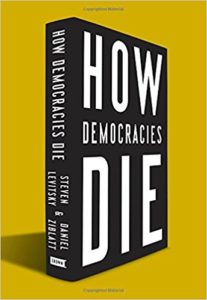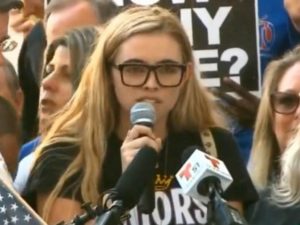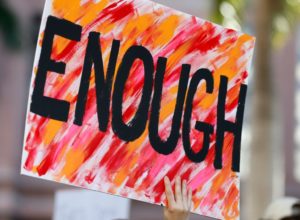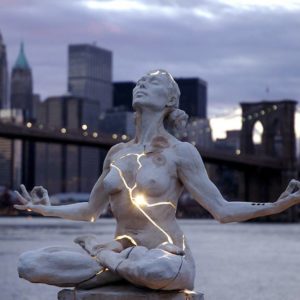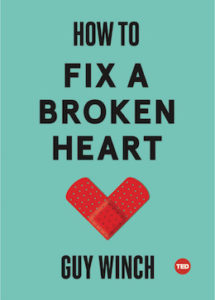Democracy, Media Literacy, Civic Engagement
February 17, 2018“The Americans are very impressionable people; they see what they want to see. I have a lot of respect for them. I am not upset at all that I ended up on this list. If they want to see the devil, let them see him.”
Russian Oligarch Yevgeny V. Prigozhin, one of 13 Russians indicted by a federal grand jury on Friday, February 16th, 2018, for interfering in the American election.
Full Indictment:
“Facebook, Twitter and Google have all identified the Internet Research Agency as a prime source of provocative posts on divisive American issues, including race, religion, gun laws and gay rights, particularly during the 2016 presidential election. Facebook found, for example, that the agency had posted 80,000 pieces of content that reached more than 126 million Americans.” [NYTimes]
Tedx Wandsworth/2.8.18
Imagine a world where democracy lives up to its lofty promise… where problems are solved by debate and compromise rather than vitriol and internet trolls. A nice thought isn’t it?” asks Brian Klaas. As a scholar of democracy and authoritarianism, he’s seen fear-and-division politics rising across the world, but says we’re more powerful than we think in reversing this trend. Beyond the uncomfortable stats of our civic shortcomings; he shares moments with those he’s met risking their freedom and their lives for a democratic choice; and offers five concrete ways we can start changing what we don’t like.
Thoughts from Brian Klaas:
Democracies around the world are dying. Remember: Being a citizen is a full time job.
V
O
T
E
#2018
People who say, “my vote doesn’t matter”? Wrong.
Politicians pander to those who vote. (Who votes in majority? Older white males.)
Democracies are dying. One man in Russia who was being followed by the secret police told Klaas, “You don’t know how lucky you are.”
“There are these two young fish swimming along and they happen to meet an older fish swimming the other way, who nods at them and says “Morning, boys. How’s the water?” And the two young fish swim on for a bit, and then eventually one of them looks over at the other and goes “What the hell is water?”
-David Foster Wallace
We need to remember how powerful we are.
Of the people.
By the people.
For the people.
Ongoing paradox: People are unhappy with the system, but not many do much to understand it…or do anything.
In the midterm election in 2014, 36% of registered voters voted. 64/100 didn’t bother.
In the 2016 presidential election? 60% voted. And the current president was voted in by 30% of the US population. Apathy voted a candidate into the Oval Office.
80,000 people tipped the election…enough to fit into a football stadium.
We get the candidates we deserve.
P A R T I C I P A T I O N
Our collective power to save democracy:
-
Vote in every election…local and national, because the local candidates become national candidates.
-
Before the election talk to 10 people before voting.
-
Be the boss to your politicians; they work for us. Whether they agree with you or not, tell them how you feel.
-
Reach out to someone who believes completely differently from what you believe. And listen.
-
Run for office or organize a new political group.
Actions become ripples and those ripples become tsunamis.
Think about it. If women waited for an invitation, we still wouldn’t have the right to vote.
2018 is ours. And the youth? They are activating.
︶⁀°• •° ⁀︶
Go see it. It will give you hope. (Stay until the very final credit rolls.) ☆ ☆ ☆ ☆ ☆
Spiritual Warriors
There is a beautiful Tibetan myth that helps us to accept our sadness as a threshold to all that is life-chaing and lasting. This myth affirs that all spiritual warriors have a broken heart—alas, must have a broken heart—because it is only through the break that the wonder and mysteries of life can enter us.
So what does it mean to be a spiritual warrior? It is far from being a soldier, but more the sincerity with which a soul faces itself in a daily way. It is this courage to be authentic that keeps us strong enough to withstand the heartbreak through which enlightenment can occur. And it is by honoring how life comes through us that we get the most out of living, not by keeping ourselves out of the way. The goal is to mix our hands in the earth, not stay to stay clean.
I keep breathing deeply through the breaking my heart. In daily ways, we are judged, discounted, and even pitied for glories that only we can affirm. In the end, life is too magnificent and difficult for us to give away our elemental place in the journey.
At some point in our lives, almost every one of us will have our heart broken. Imagine how different things would be if we paid more attention to this unique emotional pain. Psychologist Guy Winch reveals how recovering from heartbreak starts with a determination to fight our instincts to idealize and search for answers that aren’t there — and offers a toolkit on how to, eventually, move on. Our hearts might sometimes be broken, but we don’t have to break with them.
-Guy Winch, author “How to Fix a Broken Heart”
Grace under pressure.
